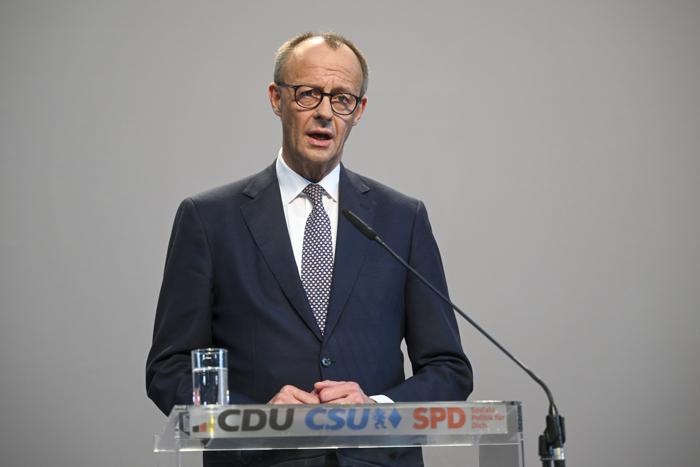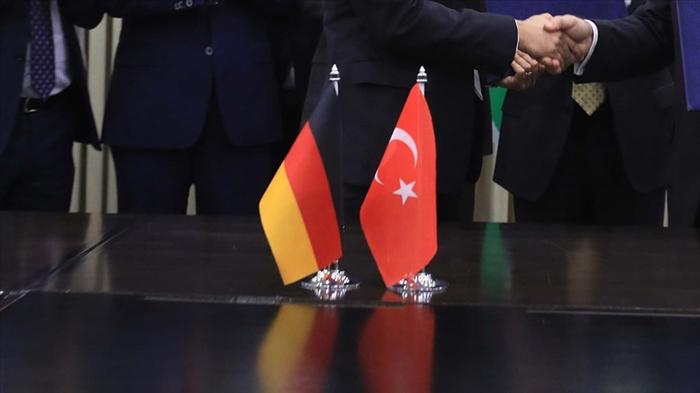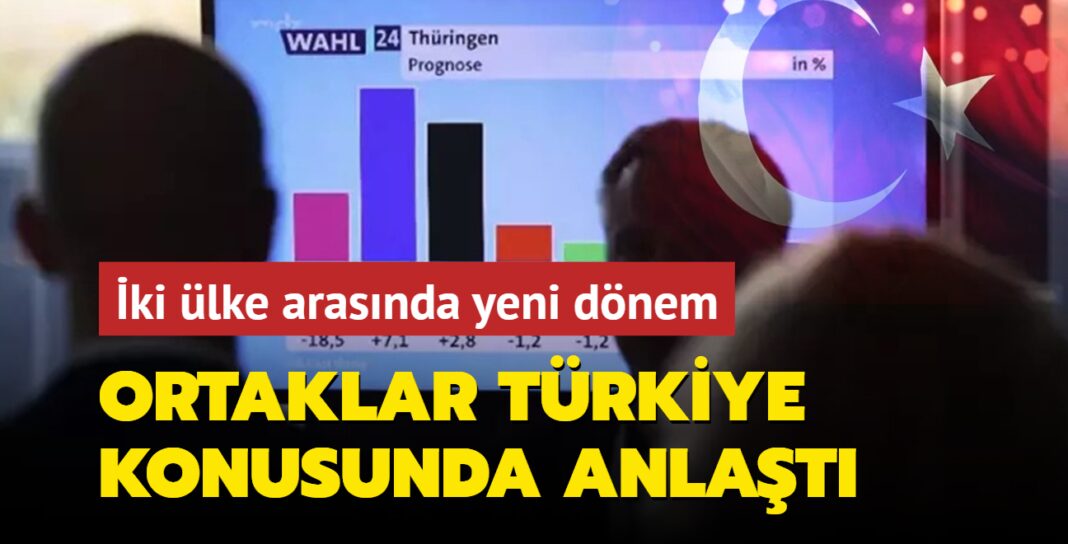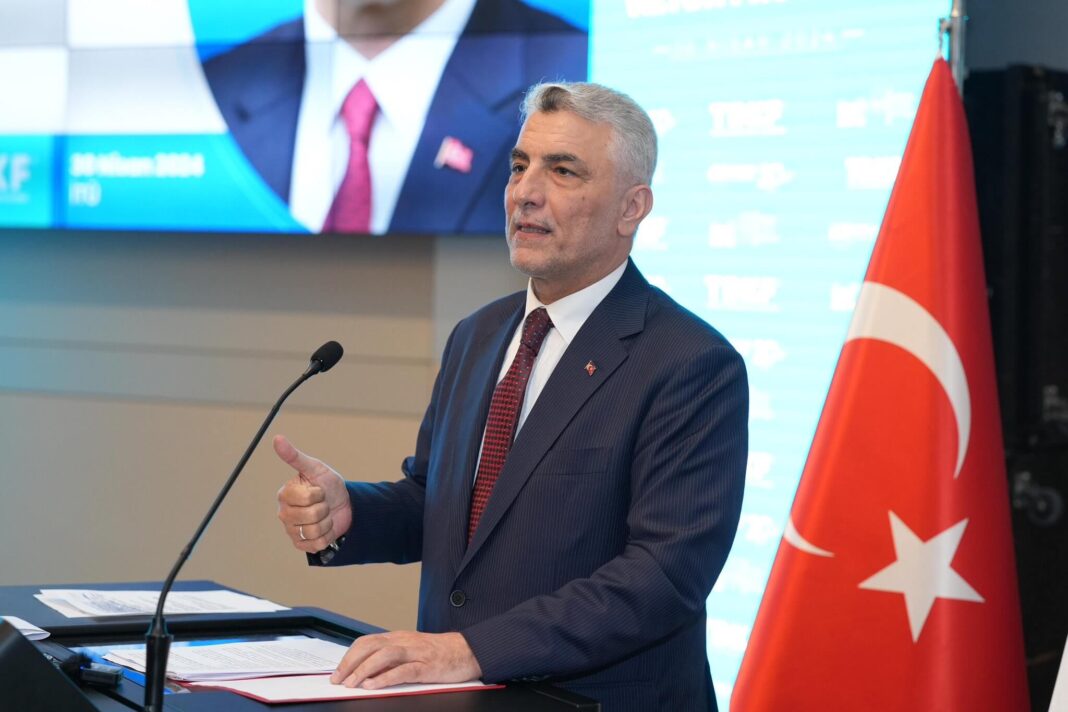Yunus Mazı at the University of Krems Yunus Mazı wrote the details of the coalition agreement in Germany and the internal and external agendas waiting for the Merz government for AA analysis. Mazı touched upon Merz’s relations with Türkiye and drew attention to Türkiye’s factor in the coalition agreements.
Search for political stability in Germany
Following the general elections held on 23 February 2025, Germany entered a new era in search of political stability. The Christian Democratic Union/Christian Social Union (CDU/CSU) became the first party with 28.5 percent of the vote, while the alternative for Germany (AFD) ranked second with 20.8 percent. This result has been considered as the most powerful performance so far in terms of AFD. The Social Democratic Party (SPD) has achieved one of the lowest votes in its history with 16.4 percent. (1)
Following the negotiations that lasted about 6 weeks after the election, CDU/CSU and SPD had an agreement on establishing a large coalition, CDU Chairman Friedrich Merz was expected to be elected Prime Minister on May 7 (2)
The basis of the coalition is the target to relax the debt brake for defense expenditures and to create a special fund of 500 billion euros for infrastructure investments. In line with the 160 -page coalition contract, CDU/CSU is expected to receive 10 ministries and 7 ministries. (3) (4)
Is it a fight against populism or harmony?
As well as the new government structure in Germany, the balance of opposition changes. In the poll dated 9 April 2025, AFD rose to 25 percent, while the CDU/CSU decreased to 24 percent. The rise of the party is particularly related to migration, security and economic uncertainties. Afd, who is strong in the East, finds support in the West, which opens the central parties.
The Merz government is expected to follow a harder line in migration policies compared to its predecessor Ampel coalition. In the talks, a “return move” for immigrants of Syria and Afghanistan was foreseen, and this coincided with the goal of “Paradigm Change” defended by Merz. (6)
In addition, the government adopts “security” -oriented policies for Muslims under the title of “Fighting Islamism”. In this field, it is planned to establish a permanent structure within the Ministry of Interior. (7) However, this approach has caused concern that it could nurture discrimination against Muslim society.
In Germany, in 2023, 88 of the mosque attacks were recorded in 1926 anti -Islamic incidents. (8) This painting shows that CDU has shifted to the right to regain the social sphere, but this carries serious risks in terms of social harmony and democratic values.
The new government’s foreign policy road map
The fact that Donald Trump was re -president of the United States (USA) in January 2025 started a new period of uncertainty in transatlantic relations. This development is strategically closely monitored for a country that depends on foreign trade like Germany. According to 2024 data, the United States led China behind Germany’s largest trade partner with a trade volume of 252.8 billion euros. (9) This has strengthened Berlin’s search for more balanced and functional relations with Washington.
With its completely relationship of interest
Although the Trump administration maintains its protectionist attitude towards China, its uncertainties in economic relations with Germany continue. For this reason, the CDU/CSU-SPD coalition emphasizes that relations with the US are “extraordinary importance” and aims to closely cooperate with North America. In this context, Merz met with Trump and proposed a new economic model based on the understanding of “zero customs”. Merz’s priority to Europe shows that Germany is not only in the relationship with the United States, but also with the integrity of the European Union (EU). (10)
Germany wants to change direction in defense policy after the Russian-Ukraine War and to maintain a budget of 100 billion euros announced by Chancellor Olaf Scholz. The coalition agreement envisages a stronger role in NATO and consequently increasing defense expenditures, while commitment to the principles of disarmament is maintained. Military, political and humanitarian aid to Ukraine, NATO membership perspective and restructuring support are Berlin’s main objectives.
However, these goals face serious obstacles due to structural deficiencies in the army, economic stagnation, energy crisis and global uncertainty after Trump. This fragility affects not only Germany, but also the weakened Europe after the Russian-Ukraine War, Migration and Brexit. Germany’s security policy may be decisive at a continental level, but the chances of success seem to be limited under current conditions.

New balance between Berlin and Ankara
In Germany’s foreign policy, Türkiye is considered a strategic partner not only because of its geographical proximity but also due to its position, military capacity and regional effectiveness in NATO. Türkiye, which has the second largest military power in NATO after the USA, is an important cooperation partner for Berlin, especially for migration, fight against terrorism and regional stability. The role it took on the Syrian crisis and the position that Syrian refugees in Germany can play on the return of the return has made Ankara even more central.
Merz’s statements indicate that a more rational and geopolitical line will be started in relations with Türkiye. Merz emphasizes that Türkiye is an indispensable actor not only in military but also in Europe’s security architecture, but draws attention to the necessity of strategic dialogue with Ankara in the context of the Russian-Ukraine War and instability in the Middle East. It is also aimed to cooperate with Türkiye in the reconstruction of Syria (11).
This approach is also reflected in the coalition agreement on which CDU/CSU and SPD agreed. Türkiye is defined as the “strategic partner in NATO, an effective actor in the EU neighbor and the Middle East” and emphasizes that it should be acted together in many areas from migration to security. Although issues such as human rights and the state of law are expressed, it is no longer a preliminary condition of relations, but within the framework of long -term goals. This shows that Berlin follows a more pragmatic and interest -oriented line (12)
In addition, Merz cares about the participation of the Turkish society in Germany to democratic life and states that the CDU aims to establish stronger ties with this community. The existence and restructuring of Turkish MPs and the integration network, which is planned to be restructured, shows that both the external and domestic politics is considered together in Türkiye and the Turkish Diaspora.
Introduction to a difficult period
As of 2025, Germany has entered a transition period, not only a new government, but also with multi -layered crises. The coalition led by Merz faces difficulties such as dissolution of central politics, economic weakness and increasing social polarization. The rise of AFD is the most visible reflection of this crisis. The approach of the center right to AFD may be a strategic move in the short term, but this is risky for democratic norms.
There is a similar tension in foreign policy. With Trump being the US president again, transatlantic relations became uncertain, and the incompatibility between Berlin’s economic capacity and foreign policy goals deepen. At this point, the strategic partnership to be established with Türkiye becomes even more important. Türkiye’s position in NATO, its role in migration and security policies has become indispensable for Germany. Although Merz’s positive messages against Türkiye give a constructive starting sign, it is not yet clear how these discourses will be reflected in the application.
As a result, the Merz government has to manage not only the coalition balance, but also the internal stability of Germany and the security of Europe together. The success of these goals depends on the nature of social harmony, economic balance and international partnerships beyond political will. In this context, the constructive cooperation with Türkiye will be one of Berlin’s most strategic leverage in the coming period.
(1) https://www.bundeskahlleiterin.de/bundesagenwahlen/2025/bund-99.html (2) ttps: //www.tr.global/article/467952689716 (3) https://www.tr.global/art icle/f79891460511 (4) https://www.merkur.de/politik/einung-be-top-resorts-ueberrasche nde-nene-bein-list-liste-93674810.html (5) https://www.reuters.com/world/europe/germa NYS-FAR-FARHT-AFD-Tops-Poll-Time-Blow-Blow-Cellor-in-Waaing-Merz-2025-04-09/? _Source = chatgpt.com (6) https://www.merkur.de/politik/Merz-migration-news-det-baldige-abschiebefluege-nach-fghanistan-und-syrien-zr-93676462.html (7) https: //www.spd .DE/FILEADMIN/Documents/coalition contract_2025.pdf (8) https://www.claim-allianz.de/press E/Presemitteigung-antimuslimische-Uebergerte- und-Discrimination-in-deutschland-2023- more-Als-Fuenf-Antimuslimische-Pro-Tag/#: ~: Text = text = 2023%20,%20 l 20 antimuslim, Rent%C3%B6SE 20 %% 20 Muslim 20%of the 20%. 30219248. Sche-null-polytic-mit-from-usa-13517413.html (11) https://www.aa.com.tr/en/dunya/alma Nyada-Cdu-Csun-Basbakan-Adayi-Merz-As-Aaya-Aay-Aay-Aay-Aaya-3469967 (12)

Global electric vehicle market has grown strongly in the first quarter

Great operations in 5 countries … 234 members of the senior criminal organization in custody

The enthusiasm of 90 days took a short time … Stock exchanges went hard again





